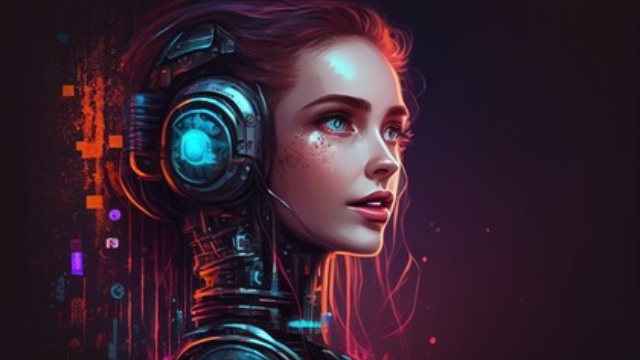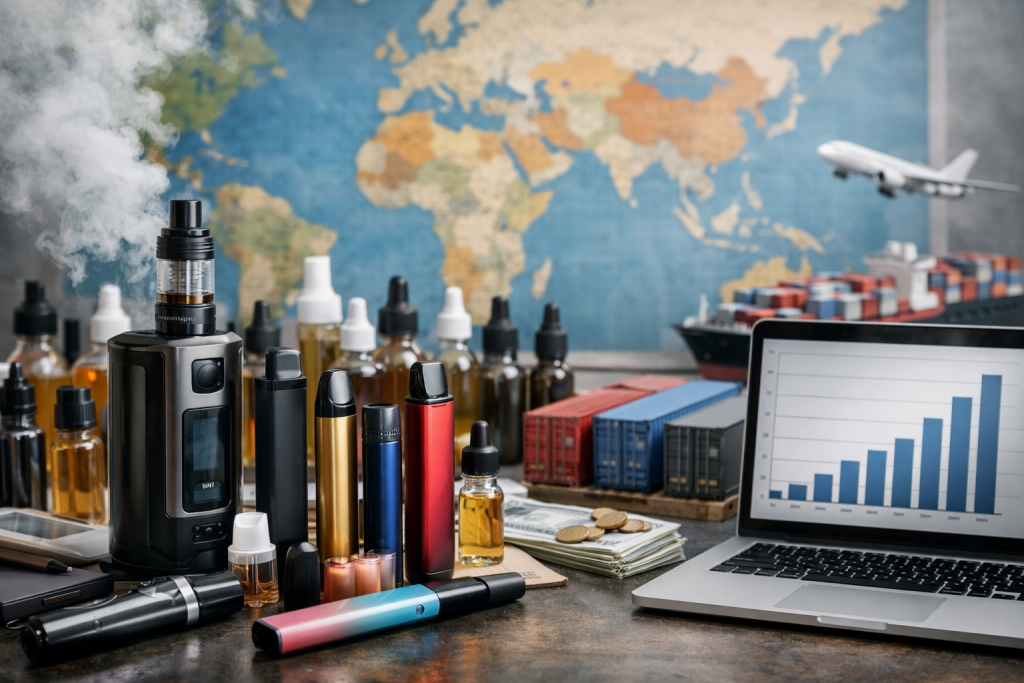Are you curious about which businesses can withstand the rise of AI? Look no further. In this article, we’ll delve into the specifics of what types of businesses remain unaffected by artificial intelligence. By examining traditional crafts, specialized industries, local service-based businesses, human-centric fields, emotion-driven businesses, creative endeavors, and highly personalized industries, you’ll gain a comprehensive understanding of the sectors that thrive in the face of technological advancement. So, let’s explore the resilient businesses that remain untouched by the AI revolution.
Traditional Crafts and Artisan Businesses
Traditional crafts and artisan businesses can continue to thrive in the age of AI, thanks to their unique human touch and personalized approach to creating products. Handmade products, crafted using traditional techniques, have a distinct appeal to consumers seeking authenticity and quality. While AI may be able to replicate certain aspects of production, it cannot replicate the inherent value of products that are made by skilled artisans with years of experience.
The beauty of handmade products lies in the intricate details and imperfections that make each piece unique. Artisan businesses often specialize in specific crafts, such as pottery, woodworking, or textile weaving, honing their skills over generations. These crafts require a deep understanding of materials, techniques, and tools that cannot be easily replicated by AI. The time, effort, and passion invested in each handmade product create a connection between the creator and the consumer, fostering a sense of appreciation and value.
Furthermore, traditional techniques have a rich cultural heritage and historical significance. They represent a link to our past and preserve traditional craftsmanship that might otherwise be lost in the face of technological advancements. The process of creating handmade products often involves age-old methods that have been passed down through generations, carrying with them stories and traditions that add depth and meaning to the final product.
Niche and Specialized Industries
Niche and specialized industries are not heavily affected by AI due to limited applications of the technology in these fields. These industries often require unique human expertise that cannot be easily replicated by AI systems. Additionally, the low market competition in niche industries provides a buffer against the disruptive effects of AI, allowing businesses to continue operating with minimal disruption.
Limited AI Applications
When it comes to limited AI applications in niche and specialized industries, you may find that certain businesses are less affected than others. In particular, industries that rely heavily on industrial manufacturing and mass production have a higher likelihood of being impacted by AI. However, there are still businesses within these industries that may have limited AI applications. To better understand this, let’s take a look at the following table:
| Niche and Specialized Industries | Limited AI Applications |
|---|---|
| Automotive | Self-driving vehicles |
| Healthcare | Medical diagnosis |
| Agriculture | Crop monitoring |
In the automotive industry, self-driving vehicles are an example of limited AI applications. These vehicles use AI algorithms to navigate roads and make decisions in real-time. In healthcare, AI is used for medical diagnosis, where algorithms analyze patient data to assist doctors in making accurate diagnoses. In agriculture, AI is applied in crop monitoring, helping farmers detect diseases, pests, and optimize irrigation. While these industries may have limited AI applications, they still benefit from the efficiency and accuracy that AI brings.
Unique Human Expertise
You can find unique human expertise in certain niche and specialized industries, which allows them to remain unaffected by AI. These expertise-driven professions require complex problem solving skills that are difficult for AI to replicate. Industries such as medicine, law, and architecture rely heavily on the knowledge and experience of human experts. In medicine, doctors use their expertise to diagnose complex diseases and develop personalized treatment plans. In law, lawyers analyze intricate legal cases and provide strategic advice to their clients. Architects utilize their creativity and technical skills to design unique and innovative structures. These industries require a deep understanding of human behavior, ethics, and creativity, which are areas where AI still falls short. As a result, these niche and specialized industries continue to rely on the expertise of human professionals and are less susceptible to the disruptive impact of AI.
Low Market Competition
Industries that possess unique human expertise also often experience low market competition in niche and specialized fields. This lack of competition can translate into high profit industries, especially in emerging markets. When an industry requires specialized knowledge or skills that are not easily replicated by AI, it becomes less susceptible to disruption. These specialized industries often cater to a specific customer base and offer products or services that are tailored to their unique needs. Due to the limited number of competitors, businesses in these industries can charge higher prices and enjoy higher profit margins. Moreover, emerging markets provide additional opportunities for growth and expansion, as they are often underserved by existing players. Therefore, businesses operating in niche and specialized industries can capitalize on their unique expertise and low market competition to thrive in the age of AI.
Local Service-Based Businesses
Local service-based businesses continue to thrive despite the increasing impact of AI on various industries. These businesses, which rely on providing personalized and hands-on services to customers, have managed to carve out a niche that is less vulnerable to automation. Here are two key reasons why local service-based businesses are not significantly affected by AI:
- Home-based services: Many local service-based businesses operate from home, offering services such as house cleaning, pet sitting, and gardening. These services require a human touch and the ability to adapt to the unique needs of each customer. AI may be able to perform some tasks, but it lacks the personal interaction and attention to detail that customers value in these services.
- Professional consulting: Another area where local service-based businesses excel is in providing professional consulting services. These businesses rely on their expertise and knowledge to provide valuable insights and guidance to clients. While AI may be able to process large amounts of data and provide some analysis, it cannot replace the experience and judgment that human consultants bring to the table.
Human-Centric Fields
Despite the increasing impact of AI on various sectors, human-centric fields continue to flourish. In these fields, the focus is on providing personalized services that cater to individual needs and preferences. Two notable examples of human-centric fields are human centric healthcare and personalized education.
In human centric healthcare, the emphasis is on delivering patient-centered care that takes into account the unique circumstances and characteristics of each individual. AI can certainly assist in healthcare by analyzing large amounts of data and providing recommendations, but it cannot replace the compassionate care and empathy that healthcare professionals provide. The table below highlights the key differences between AI-driven healthcare and human centric healthcare:
| AI-Driven Healthcare | Human Centric Healthcare |
|---|---|
| Relies on algorithms and data analysis | Focuses on personalized care |
| Provides recommendations based on patterns and statistics | Considers individual circumstances and preferences |
| Lacks human interaction and empathy | Emphasizes compassionate care |
| Can process large amounts of data quickly | Incorporates human judgment and intuition |
Similarly, in personalized education, the focus is on tailoring the learning experience to the needs and learning styles of each student. While AI can enhance education by providing personalized recommendations and adaptive learning platforms, it cannot replace the guidance and mentorship that teachers provide. The table below illustrates the differences between AI-driven education and personalized education:
| AI-Driven Education | Personalized Education |
|---|---|
| Relies on algorithms and data analysis | Tailors learning to individual needs |
| Provides recommendations based on performance data | Considers learning styles and preferences |
| Lacks human interaction and emotional support | Offers guidance and mentorship |
| Can deliver content efficiently and at scale | Incorporates human creativity and critical thinking |
Emotion-Driven Businesses
Emotion-driven businesses can still maintain their uniqueness and human touch in the face of AI’s advancements. While AI has the potential to automate many tasks and improve efficiency, there are certain aspects of customer experience that rely on human emotions and empathy. Here are two reasons why emotion-driven businesses will continue to thrive:
- Emphasis on empathy driven services: Emotion-driven businesses understand the importance of empathy in creating meaningful connections with customers. AI may be able to analyze data and make predictions, but it lacks the ability to truly understand and empathize with human emotions. Emotion-driven businesses can leverage this human touch to provide personalized experiences that cater to individual needs and emotions, which can lead to stronger customer loyalty and satisfaction.
- Unique customer experience: Emotion-driven businesses differentiate themselves by offering a unique customer experience that goes beyond transactional interactions. They focus on building relationships, understanding customer preferences, and anticipating their needs. This level of personalized attention cannot be replicated by AI alone. By creating memorable experiences that evoke positive emotions, emotion-driven businesses can create long-lasting connections with customers, fostering loyalty and repeat business.
Creative and Artistic Endeavors
When it comes to creative and artistic endeavors, AI may seem like a threat, but there are certain aspects that cannot be replicated by machines. The human touch and the ability to bring a unique perspective to a piece of art or a creative project is something that AI cannot fully achieve. Additionally, the emotional connection that is formed between the artist and the audience is vital and cannot be replaced by algorithms. Therefore, businesses in the creative and artistic industries can rest assured that AI will not completely take over their domain.
Human Touch Remains
In creative and artistic endeavors, the human touch remains crucial for delivering unique and personalized experiences. While advancements in artificial intelligence (AI) have revolutionized various industries, they have yet to fully replace the human element in creative and artistic fields. Here’s why:
- Technological limitations: Although AI has made significant progress in areas such as image and music generation, it still falls short when it comes to capturing the nuances and emotions that humans can convey through their work. The complexity of human creativity and the ability to think outside the box are challenging for AI to replicate accurately.
- Consumer preference for human interaction: In the realm of creative and artistic endeavors, consumers often value the personal connection and emotional resonance that comes from interacting with a human creator. Whether it’s a live performance, a handcrafted piece of art, or a personalized design, people appreciate the authenticity and individuality that only humans can provide.
Uniqueness Cannot Be Replicated
For creative and artistic endeavors, the uniqueness that humans bring cannot be replicated by AI. While artificial intelligence has made significant advancements in various fields, it still struggles to capture the essence of human creativity. When it comes to intellectual property and cultural heritage, AI lacks the ability to generate truly original and authentic works. Intellectual property, such as patents and copyrights, is protected by legal frameworks to ensure that creators are recognized and rewarded for their unique contributions. Similarly, cultural heritage is deeply rooted in human history, traditions, and experiences, making it difficult for AI to accurately reproduce and interpret its significance. The intricate nuances, emotions, and personal touch that artists infuse into their work cannot be replicated by algorithms and machines. Ultimately, it is the human touch that adds value and preserves the irreplaceable nature of creative and artistic endeavors.
Emotional Connection Is Vital
To truly appreciate and understand creative and artistic endeavors, you need an emotional connection that artificial intelligence simply cannot provide. While AI can mimic certain aspects of creativity, such as generating music or paintings, it lacks emotional intelligence, which is crucial in creating meaningful and impactful art. Here’s why emotional connection is vital in creative and artistic endeavors:
- Emotional intelligence fosters authentic expression: Artists tap into their emotions to create works that resonate with others. AI lacks the ability to feel emotions, making it incapable of capturing the depth and complexity of human experiences.
- Emotional connection drives customer loyalty: When consumers connect with art on an emotional level, they develop a sense of loyalty towards the artist or brand. This emotional bond cannot be replicated by AI, making it a unique selling point for artists and businesses in the creative industry.
Highly Personalized and Customized Industries
You may find that only a few highly personalized and customized industries remain unaffected by AI. These industries, such as customized healthcare and personalized fashion, require a level of individual attention and human touch that cannot be replicated by artificial intelligence.
In the field of customized healthcare, AI may assist in data analysis and diagnosis, but it cannot replace the human element of empathy and understanding. Personalized care involves understanding a patient’s unique needs, preferences, and medical history, which requires a deep level of human interaction. AI may provide recommendations, but ultimately, it is the healthcare professionals who make decisions based on their expertise and personal connection with the patient.
Similarly, personalized fashion relies on the ability to understand individual style preferences, body shapes, and sizes. AI may assist in suggesting outfit combinations or predicting trends, but it cannot replace the creativity and intuition of a human fashion designer. The process of creating custom-made garments or advising on personal style choices requires a level of personalization that AI simply cannot achieve.



